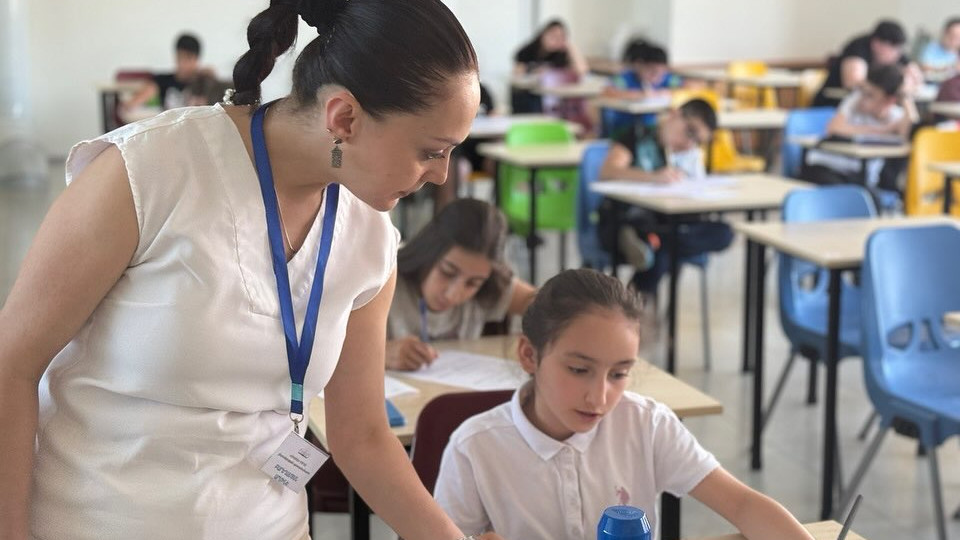
While students were enjoying their well-deserved summer break, the busy work routine at Usum School continued in full swing.
Year-end summaries, planning for the upcoming academic year, and of course, the filling of vacant spots due to student mobility were all part of the school's ongoing efforts.
It is worth noting that for the second year in a row, the process of filling vacant spots at Usum School has been conducted in a new format. As early as last June, the school transitioned from the traditional format of student admissions—consisting of interviews and oral knowledge assessments—to a multi-stage entrance examination process.
Thus, achieving both success and progress, applications and admissions for students in grades 5 through 12 were carried out through the school’s official website. Perhaps the most innovative element was that all communication and official correspondence throughout the entire admissions process—from registration to final decisions—was conducted exclusively via electronic means.
Summing up the admissions process, it should be noted that around 200 applicants registered for a chance to become students of Usum's middle and high school. The first step involved written entrance exams in four core subjects: Armenian Language, Russian Language, Mathematics, and English. Applicants who passed the set quality threshold for the written exams were then invited to a pedagogical-psychological interview, which served as the final stage in the selection and admission process.
Based on ongoing and final evaluations of the admissions process, Admissions Committee representative and Deputy Principal L. Sujoyan expressed confidence that the future of education lies not in knowledge alone, but in skill-based learning. She emphasized that just as important—if not more—than written exams is the applicant’s worldview, which becomes apparent during the pedagogical-psychological interview stage.
Another committee member, Deputy Principal H. Navasardyan, highlighted that, just like during first-grade admissions, transparency remained key throughout this process—something that was made possible thanks to the digitalization of the entire procedure.
According to A. Bareghamyan, head of testing, an equally important factor was the trust of both the applicants and their parents in the fairness of the process. A clear demonstration of this trust included the confidentiality of the test materials, the systematic nature of the evaluation process, and the introduction of an appeals round.